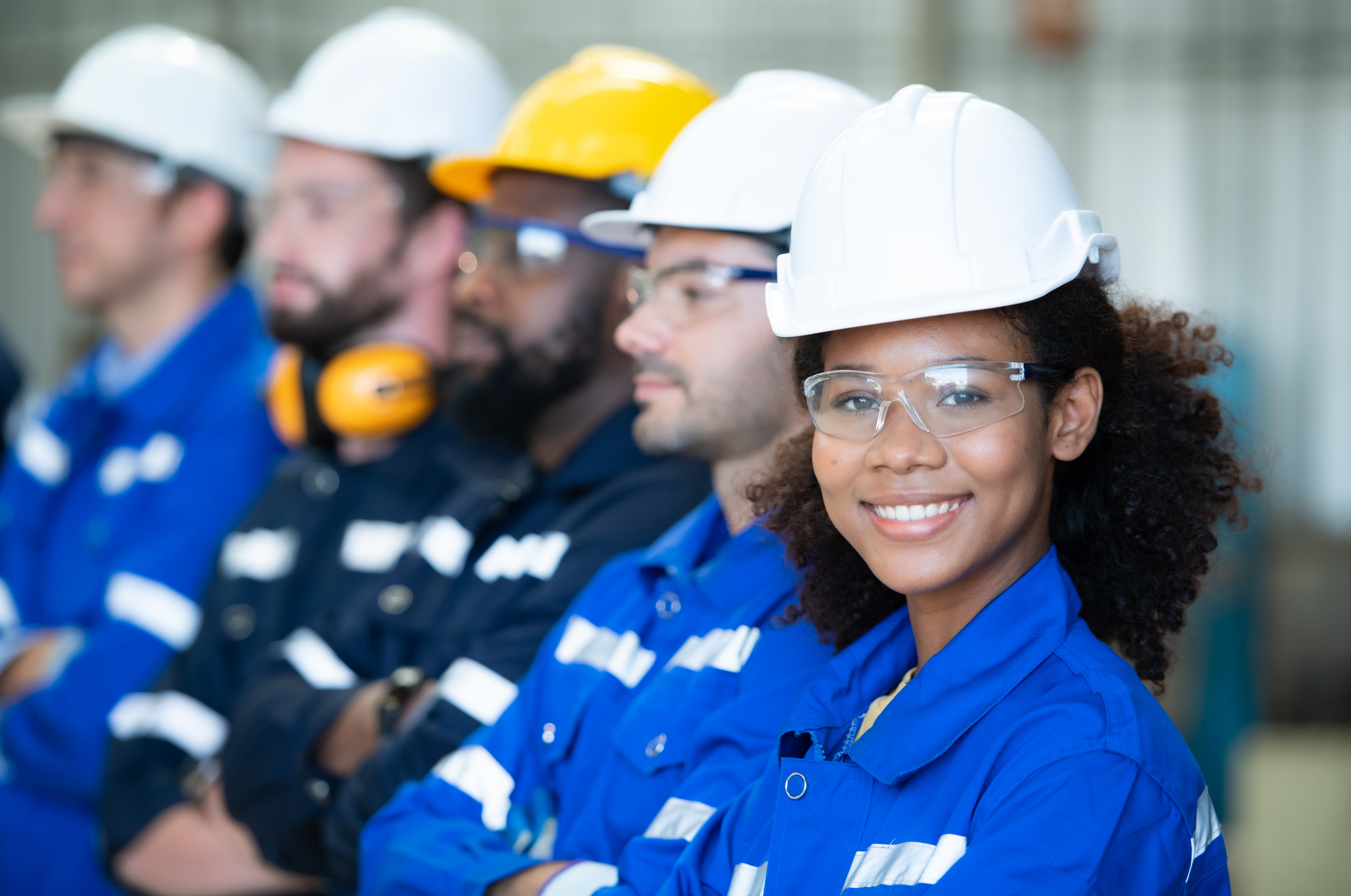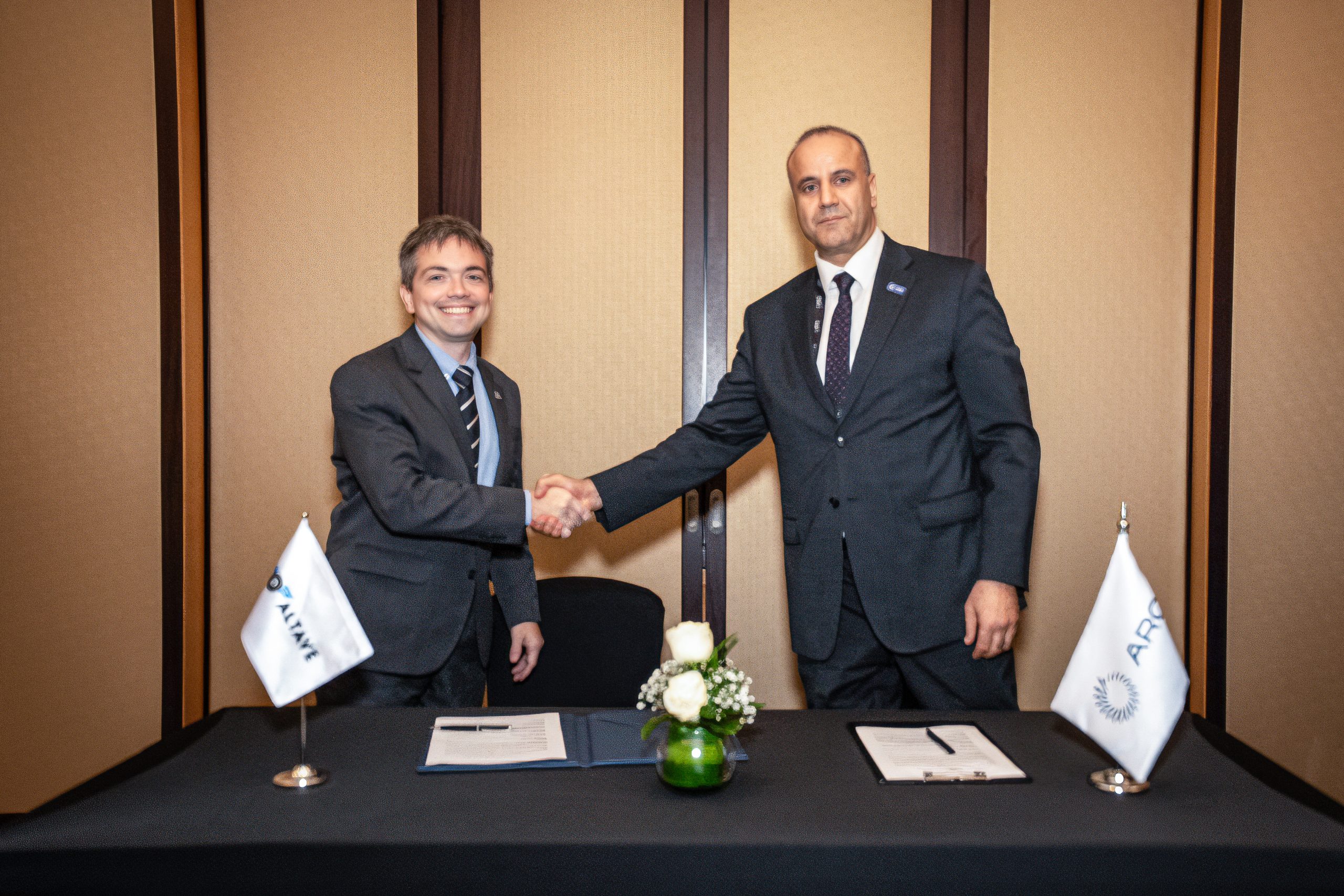Personal Protective Equipment (PPE) are devices or clothing used to protect workers against health and safety risks in the workplace. They are essential in environments such as oil and gas and ports operations, where employee safety is a priority.
The growing demand for awareness about workplace protection has driven the PPE market, highlighting its importance. This equipment protects against injuries, promotes well-being and ensures compliance with safety standards, such as NR-6.
In sectors such as oil and gas and port operations, the routine involves conditions that require constant attention to safety. The use of appropriate PPE is an essential preventive measure that helps maintain the physical integrity of professionals and reinforces collective responsibility towards the work environment.
Safety helmets
Safety helmets are essential for protecting workers against impacts and falling objects, which are common in industrial environments. They are designed to absorb and dissipate the energy of an impact, preventing serious head injuries to workers. The presence of risks such as heavy equipment and constant movement of loads makes the use of this PPE essential…
To ensure maximum protection, helmets used in oil and gas operations and ports must meet specific requirements. They need to be resistant to high temperatures and chemicals, features often found on oil platforms and port environments. In addition, they must be comfortable and adjustable, allowing workers to wear them for long periods without discomfort.
Another important feature is that the equipment must be of the chinstrap type, which has a strap that attaches the helmet to the worker's head, precisely in the neck region. This detail is essential, because this way, the safety equipment is not easily removed from the user's head, remaining attached in strong winds or other adverse conditions.
Safety footwear
Wearing protective footwear is a basic safety measure that helps prevent accidents related to uneven ground, humidity and the presence of sharp or heavy objects.
There are different types of footwear recommended for each environment. In the case of ports, boots with non-slip soles are crucial to prevent falls on slippery surfaces. On oil platforms, footwear should be chemical-resistant and have steel toecaps for additional protection against heavy objects.
They should be made of a special type of microfiber or leather, as these materials are resistant to different chemicals found in these environments. The sole should be made of polyurethane, which is specially made to prevent slipping and tripping.
Protective gloves
Developed to reduce the risk of contact with aggressive agents, protective gloves are essential in operational environments. Choosing the correct type and material is crucial to the performance of this PPE and to worker safety.
Gloves with textile support and coating are the most commonly used on oil platforms, as they are able to protect against chemicals, cuts and even impacts. Gloves developed with these characteristics are quite malleable, which can be recommended for more intensive work, in which the worker will not be able to remove them at any time.
The most recommended protective gloves for this sector and also for port operations have some type of coating in a special material, such as nitrile. This is because this material makes the gloves chemically resistant, not just mechanically. In addition, they are waterproof and allow you to work with a variety of products, such as oils, greases, acids, solvents and alcohols, and can be washed, which increases the product's useful life.
Glasses and ear protectors
Working in the oil and gas industry and ports involves constant exposure to flying particles and loud noises, making eye and hearing protection essential. Without proper protection, workers can suffer permanent eye injuries or hearing damage.
There are different types of safety glasses, such as those with anti-fog lenses and side protection, which are essential for blocking airborne particles. In addition, they help protect the eye area from chemicals that can cause everything from watery eyes to chemical burns.
For hearing protection, specialized PPE helps reduce the impact of loud noises, such as those caused by machines operating there and ships passing by. There are several models of ear protectors, from the simplest ones made of silicone, foam or polymer, which are inserted into cavities (plugs), to the shell-type ones, which sit on the head. They are often used together.
To define which is the best type of hearing protection to offer your employees, the ideal is to evaluate the decibel levels and the level of comfort that each model offers.
Protective clothing
In the oil and gas industry and ports, protective clothing is designed to provide protection against fire, chemicals and adverse weather conditions, which are common hazards in these environments.
There are different types of clothing, such as coveralls and jackets, that are made of fire-resistant materials. These materials provide a layer of protection against flames and extreme heat. Additionally, in environments where there is exposure to chemicals, fabrics treated with repellent properties are essential to prevent accidents.
Conclusion
Ensuring worker safety through the proper use of Personal Protective Equipment (PPE) is a non-negotiable responsibility in challenging operating environments. Each item has a strategic role in preventing accidents and protecting against physical, chemical and environmental risks. Compliance with standards such as NR-6 is crucial to the effectiveness of this equipment.
More than just providing the equipment, it is necessary to create a safety culture, based on continuous training and adequate guidance. To support these practices, there are already monitoring systems that allow you to check, in real time, whether PPE is being used correctly by employees. This innovation offers an additional layer of control and reinforces the company's commitment to workplace safety.
With the proper use of PPE and appropriate training, companies can achieve a significant positive impact on occupational safety, protecting lives and promoting well-being at work.
About ALTAVE
ALTAVE is a Brazilian company, accredited as a Strategic Defense Company (EED), with patented technology in Brazil and abroad. The company has obtained CE marking, indicating the approval of its product quality to be marketed throughout the European Union.
Há mais de 10 anos, a ALTAVE desenvolve soluções de monitoramento inteligente aplicadas a setores estratégicos, incluindo operações portuárias e de óleo e gás. A tecnologia ALTAVE contribui para a segurança ocupacional, promovendo análises em tempo real sobre o uso de EPIs e outros aspectos críticos da operação.
Let's have a chat?
Contact us to learn more about how our solution can help your company!





